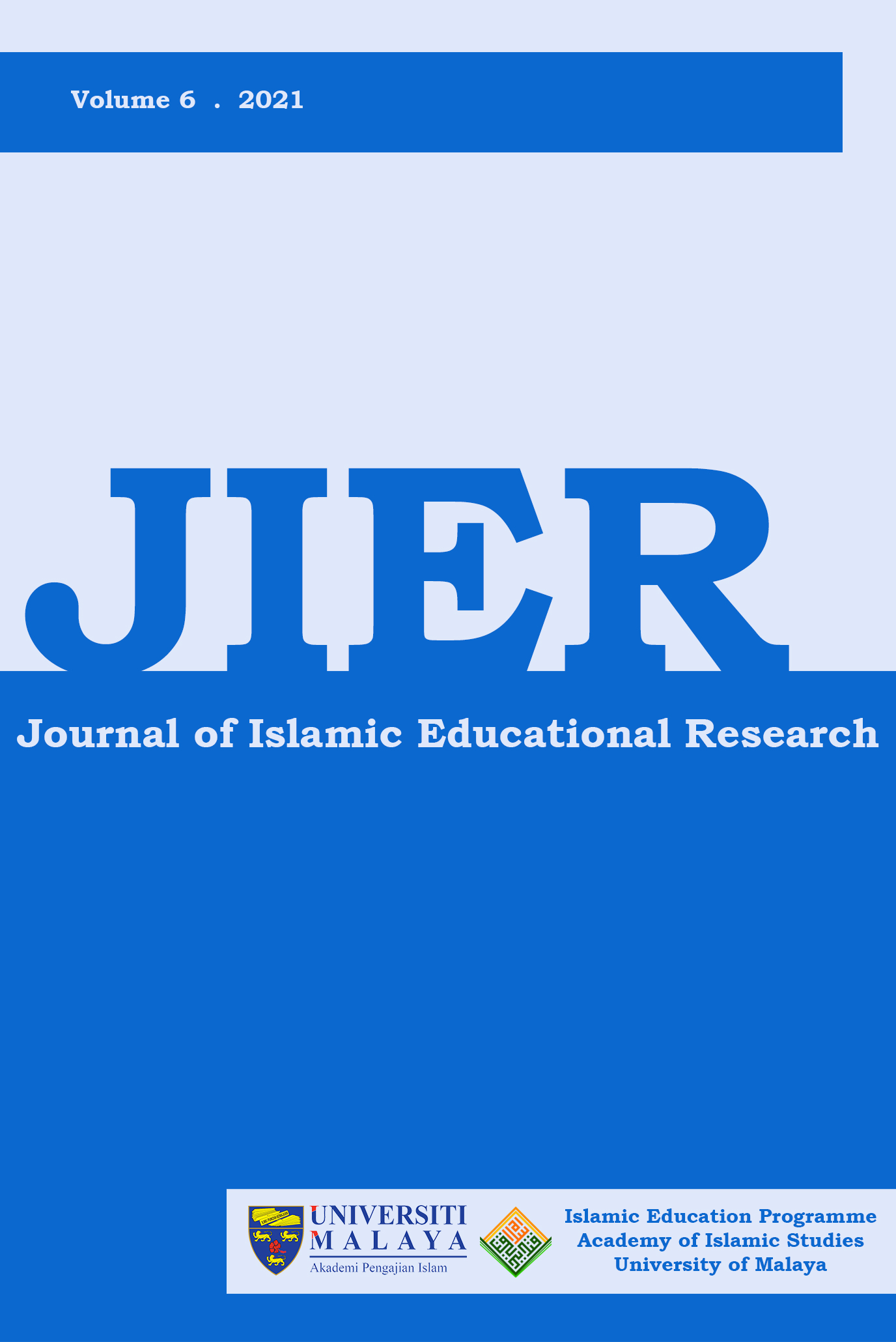انعكاسات استخدام الواقع الافتراضي على القيم لدى طلبة المرحلة الثانوية بمكة المكرمة من منظور التربية الإسلامية
THE REFLECTIONS OF THE USE OF VIRTUAL REALITY ON THE VALUES OF SECONDARY SCHOOL STUDENTS IN MAKKAH AL-MUKARRAMAH FROM THE PERSPECTIVE OF ISLAMIC EDUCATION
DOI:
https://doi.org/10.22452/jier.vol6no2021.7Keywords:
Virtual Reality, Secondary Stage, Islamic Values, Islamic EducationAbstract
The technical and electronic progress and development have led to developments that have gone beyond science fiction to gradually turn into reality, and even surpass it to show new technologies that move the world to distant places so that imagination becomes a reality, and this led to the emergence of virtual reality, and virtual reality technology is one of the technologies whose applications began to expand. The current study attempts to analyze the implications of virtual reality on students' values. The negative results resulting from the use of virtual reality, and the study followed the descriptive approach, using the questionnaire that was applied to an intentional sample of (370) students, the interviews were also applied to an intentional sample of (10) educational supervisors and teachers of Islamic education, the results showed that the reflection of the use of virtual reality on the total degree of Islamic values for secondary school students was at a moderate degree, and at the level of the sub-axes. The study recommended directing Islamic education teachers to employ virtual reality technology in the educational process and educating high school students on how to benefit from virtual reality technology without having a negative impact on their values and morals.
Downloads
Downloads
Published
How to Cite
Issue
Section
License
The published manuscript shall be a copyright of the Islamic Education Programme, Academy of Islamic Studies, University of Malaya, Kuala Lumpur, Malaysia. The published manuscript would not represent the stand or opinion of the Advisory Board, Editorial Board, Co-Editorial Board and the Management Team of Journal of Islamic Educational Research (JIER), or the Islamic Education Programme, Academy of Islamic Studies, University of Malaya.
Note: This is an open access journal which means that all content is freely available without charge to the user or his/her institution. Users are allowed to read, download, copy, distribute, print, search, or link to the full texts of the articles in this journal without asking prior permission from the publisher or the author. This is in accordance with the BOAI definition of open access.






